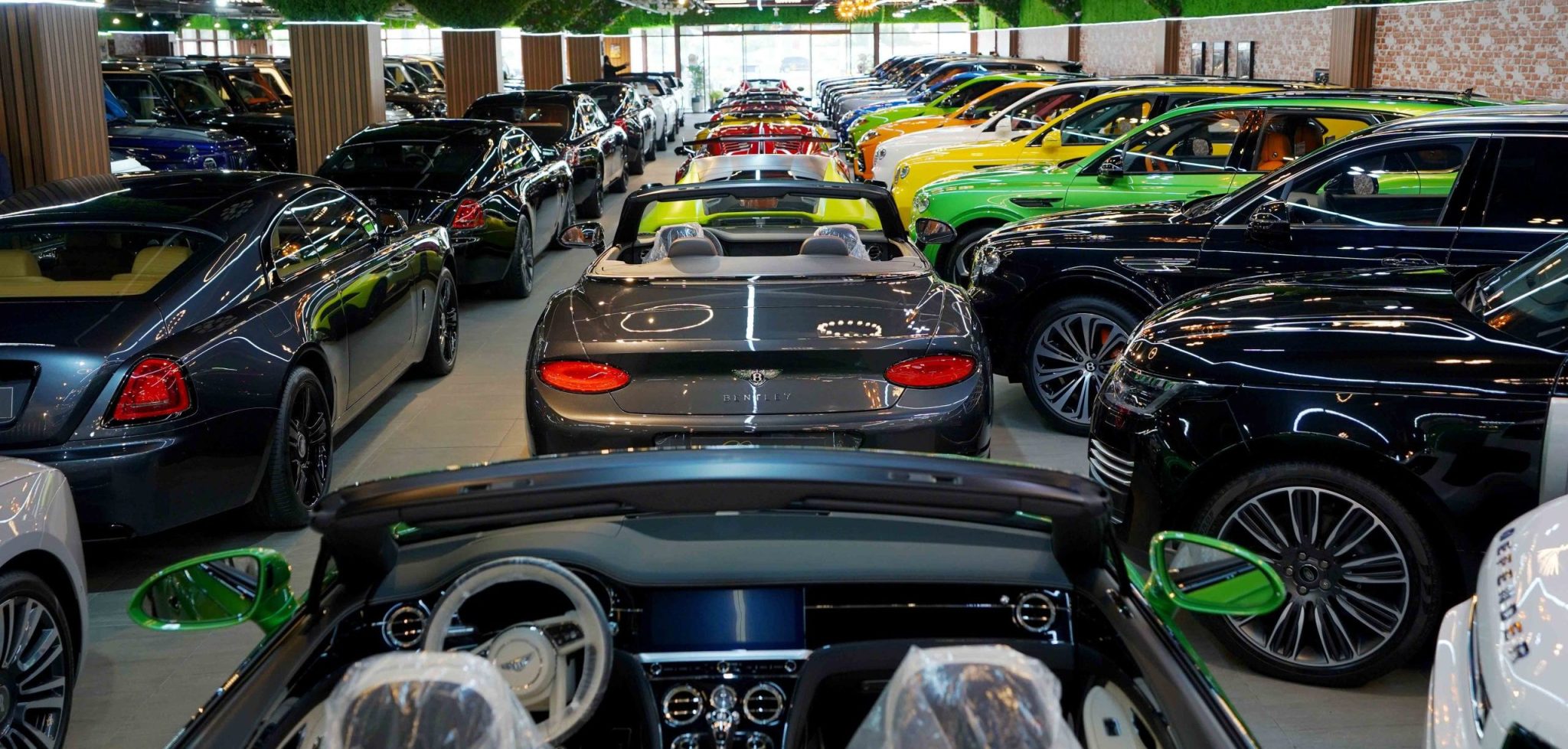Luxury cars have always held a special place in the hearts of automotive enthusiasts. They represent the pinnacle of engineering, design, and performance. For many, owning an expensive car is not just about transportation; it’s a statement of success, style, and status. But beyond the sheer thrill of driving a high-end vehicle, there’s another aspect that often gets overlooked: their potential as investments. Yes, you read that right. Expensive cars can be more than just extravagant purchases; they can also be lucrative investments that appreciate in value over time. Dourado Luxury Car is a dealership or a private seller specializing in elite cars, luxury cars and super cars for sale in Dubai UAE.
The Economics of Automotive Investments
Investing in cars may seem unconventional, but it’s a practice that has been gaining traction among collectors and investors alike. Unlike traditional investments like stocks or real estate, cars offer a unique combination of utility and scarcity. While most cars depreciate in value as they age, certain models from prestigious brands tend to appreciate, sometimes even surpassing their original purchase price. This phenomenon is driven by a variety of factors, including rarity, historical significance, and cultural relevance.
Scarcity Breeds Demand
One of the primary drivers of value appreciation in the automotive world is scarcity. Unlike mass-produced vehicles, expensive cars are often produced in limited numbers, making them coveted items among collectors. As time passes and these models become increasingly rare due to factors like accidents, natural disasters, and simple wear and tear, the remaining examples become even more valuable. This scarcity premium can turn a high-priced luxury car into a highly sought-after commodity, driving prices skyward in the collector’s market.
Historical Significance
Beyond scarcity, the historical significance of a car can also play a significant role in its investment potential. Vehicles that have made a mark in automotive history, whether through groundbreaking technology, motorsport success, or cultural impact, often command higher prices among collectors. For example, classic Ferraris like the 250 GTO or iconic muscle cars like the Shelby Cobra are prized not just for their performance but also for their place in the annals of automotive lore. Owning a piece of history isn’t just about nostalgia; it’s about owning a tangible piece of cultural heritage.
Cultural Relevance
In addition to scarcity and historical significance, the cultural relevance of a car can also impact its investment value. Certain models become ingrained in popular culture, thanks to appearances in movies, music videos, or other forms of media. These “celebrity cars” often enjoy a surge in demand from fans eager to own a piece of their favorite film or music history. Think of the DeLorean DMC-12 immortalized in the “Back to the Future” franchise or the Aston Martin DB5 forever associated with James Bond. These cars transcend their status as mere vehicles; they become symbols of a larger cultural phenomenon.
The Role of Brand Prestige
When it comes to automotive investments, brand prestige plays a crucial role. Luxury brands like Ferrari, Lamborghini, Aston Martin, and Rolls-Royce have built reputations for crafting some of the most desirable and exclusive vehicles on the planet. As a result, cars bearing these iconic badges often command higher prices in both the new and used markets. The cachet of owning a Ferrari or a Lamborghini goes beyond mere transportation; it’s a status symbol that signals wealth, taste, and discernment. This brand premium ensures that expensive cars from prestigious marques retain their value better than their mass-produced counterparts.
The Collector’s Market
While the average consumer may view cars as depreciating assets, collectors see them as potential investments that can appreciate in value over time. The collector’s market for rare and exotic cars has been steadily growing, fueled by wealthy enthusiasts seeking to build impressive car collections. Auction houses like Sotheby’s and RM Sotheby’s regularly host high-profile sales where classic and exotic cars change hands for staggering sums. From vintage Ferraris to modern hypercars, these auctions offer a glimpse into the lucrative world of automotive investments, where passion and profit intersect in spectacular fashion.
The Rise of Classic Car Indices
In recent years, the growing interest in automotive investments has led to the creation of specialized financial products designed to track the performance of classic car markets. Classic car indices, similar to stock market indices, provide investors with a benchmark for measuring the value of their automotive holdings. These indices track the prices of select classic cars over time, allowing investors to gauge the overall health and trends of the collector’s market. While still relatively niche compared to traditional investments, classic car indices offer a glimpse into the growing legitimacy of cars as investable assets.
Factors Affecting Investment Value
Like any investment, the value of a car can fluctuate due to a variety of factors. Economic conditions, consumer preferences, and market trends can all influence the demand for certain models, impacting their investment potential. For example, a sudden surge in interest for vintage Porsche 911s may drive up prices across the board, while a downturn in the economy could lead to a temporary dip in the collector’s market. Additionally, factors like mileage, condition, and provenance can also affect a car’s value, with pristine examples commanding higher premiums than their well-worn counterparts.
The Importance of Due Diligence
Before diving into the world of automotive investments, it’s crucial to conduct thorough due diligence to mitigate risks and maximize returns. Researching market trends, consulting with experts, and seeking out reputable sellers can help investors make informed decisions and avoid costly mistakes. Investing in cars requires more than just a passion for driving; it demands a keen understanding of the factors driving value in the collector’s market. By approaching automotive investments with diligence and discernment, investors can potentially reap significant rewards while enjoying the thrill of owning some of the world’s most coveted vehicles.
The Role of Preservation and Restoration
Preserving and restoring classic cars is not just a hobby for enthusiasts; it’s also a critical aspect of maintaining their investment value. Originality and authenticity are highly prized in the collector’s market, with unmodified, well-preserved cars often commanding higher prices than heavily modified or poorly maintained examples. Restorations done to a high standard by reputable professionals can enhance a car’s value by returning it to its original factory condition, provided that the work is documented and performed using authentic parts. However, over-restoration can sometimes detract from a car’s value by erasing the signs of its history and patina. Striking the right balance between preservation and restoration is essential for maximizing investment returns.
The Role of Celebrity Ownership
Cars with celebrity provenance can often fetch premiums in the collector’s market, as they carry the added allure of having been owned or driven by famous individuals. Whether it’s a classic car once owned by a Hollywood icon or a modern supercar previously driven by a professional athlete, celebrity-owned cars can attract attention from fans and collectors alike. The connection to a well-known figure adds a layer of history and provenance that can significantly enhance a car’s investment value. However, it’s essential to verify the authenticity of any claims regarding celebrity ownership and to consider the broader appeal of the individual associated with the car.
The Emerging Market for Electric and Autonomous Vehicles
As technology continues to advance, the automotive landscape is undergoing a seismic shift towards electric and autonomous vehicles. While traditional internal combustion engine cars will always hold a special place in the hearts of enthusiasts, there’s growing interest in electric and autonomous vehicles among collectors and investors. Classic electric cars like the Tesla Roadster or the BMW i8 are already beginning to attract attention from collectors, while futuristic concept cars from manufacturers like Tesla and Mercedes-Benz are generating buzz as potential future classics. As the automotive industry embraces electrification and autonomy, investors will need to adapt to new market dynamics and evolving consumer preferences.
The Globalization of the Collector’s Market
The collector’s market for classic and exotic cars is no longer confined to traditional automotive hubs like the United States and Europe. Thanks to globalization and the rise of online auction platforms, collectors from around the world can participate in the buying and selling of rare and exotic vehicles. This global reach has led to increased competition for sought-after models and has helped to drive up prices in certain segments of the market. It has also opened up new opportunities for investors to diversify their portfolios by investing in cars from emerging markets like China, India, and the Middle East.
The Role of Alternative Investments
In addition to traditional automotive investments, such as classic and exotic cars, there’s a growing interest in alternative vehicles like motorcycles, trucks, and even bicycles. These niche segments of the collector’s market offer opportunities for investors to diversify their portfolios and capitalize on unique trends and cultural phenomena. Vintage motorcycles, for example, have seen a surge in popularity among collectors in recent years, with rare models from manufacturers like Harley-Davidson and Indian commanding high prices at auction. Similarly, classic trucks and bicycles have also attracted attention from enthusiasts seeking to own a piece of automotive history outside the realm of traditional cars.
Conclusion
In conclusion, investing in expensive cars is more than just a luxury; it’s a legitimate strategy for building wealth and preserving automotive heritage. From rare Ferraris to celebrity-owned classics, the collector’s market offers a diverse range of investment opportunities for enthusiasts and investors alike. By understanding the factors driving value in the automotive market, conducting thorough due diligence, and staying attuned to market trends, investors can potentially reap significant returns while indulging their passion for cars. Whether you’re a seasoned collector or a novice investor, the world of automotive investments offers a thrilling ride filled with excitement, opportunity, and the timeless allure of the open road. So buckle up and get ready to embark on a journey where passion meets profit in the ultimate automotive investment adventure. Explore Dourado Luxury Car showroom in Dubai for latest luxury car models and car prices in Dubai UAE.


